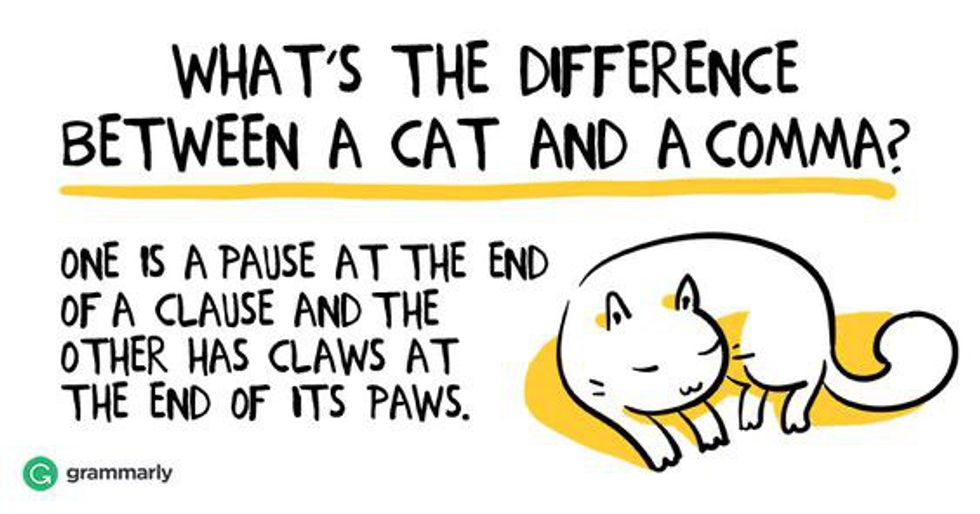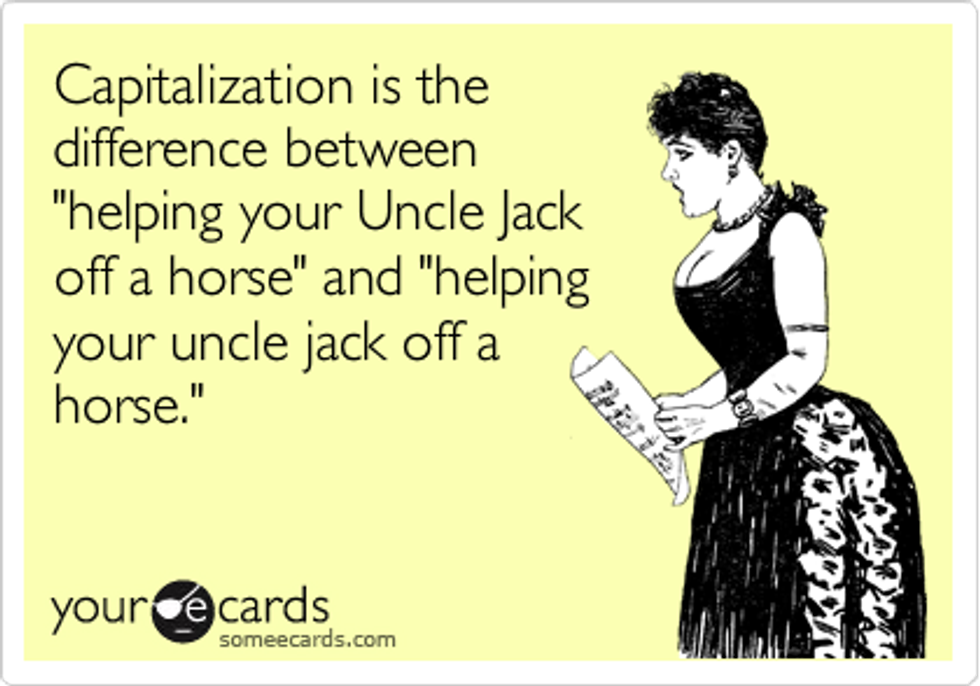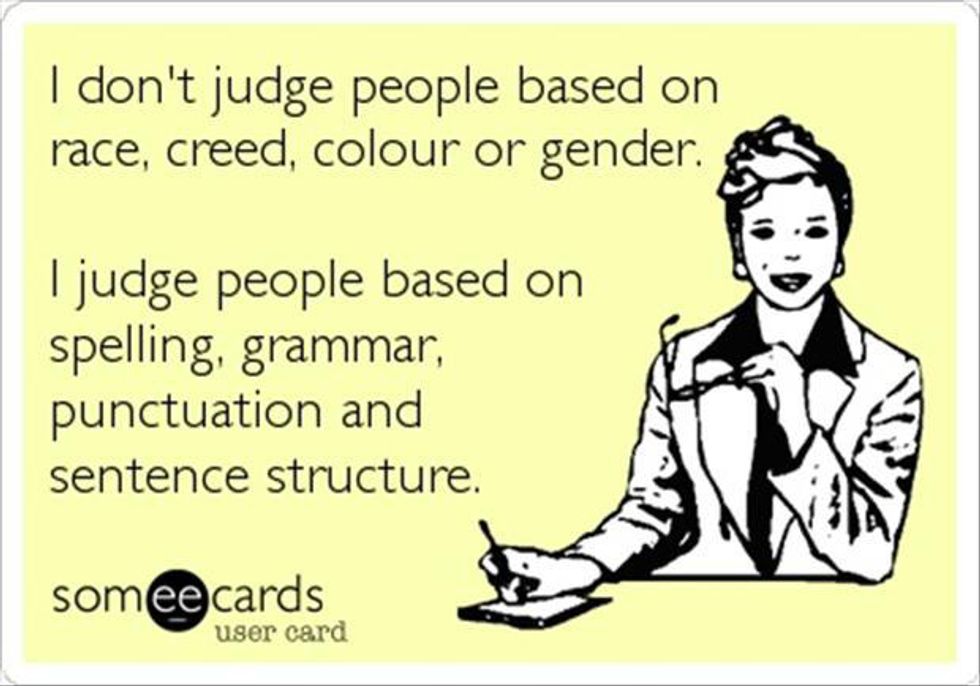Maybe it's because I've encountered too many less-than-stellar people in the past few days, or maybe America really is atrocious at literacy. Whichever the reason, however, I find myself ridiculously irked at some of the common mistakes I see in people's writing. Why? I ask myself. Why do stupid mistakes get under your skin? I think it's because they're just that: stupid. To me, these mistakes seem blatantly obvious. Then I start to realize, perhaps they aren't so obvious to other people. Perhaps they were never taught correctly. So, in the name of educating America, and because that's just the kind of person I am, I've compiled some of the most common mistakes I've seen that could easily be fixed.
1. Missing Commas

2. Comma Splices
Be careful with the advice in No. 1 because needing a pause in a sentence doesn't always mean a comma is necessary. In fact, more often than not, people misuse commas by using them too often. There's another step you have to add for your comma editing purposes. Read what's on the left of the comma. Does it make sense on its own? Read what's on the right of the comma. Does it make sense on its own? If the answer to both those questions is yes, you've committed a class D grammar felony: a comma splice. Try using a conjunction or a new sentence instead.
3. Their, There and They're
There: Location
Their: Possessive
They're: Contraction of "they are," an action
It doesn't really get more simplified than that.
4. Effect vs. Affect
This common confusion is as easy as verbs and nouns (something we should have mastered by 3rd grade, need I remind you). If you are using the word as a verb, use affect. If it's a noun, use effect. The rain on campus affects my decision to conveniently forget class starts in 10 minutes. The effect of running across campus to attend that class would be smeared makeup, matted hair and a wet dog smell. No thanks.
5. Me vs. I
Fill in the blank: You should come get drinks with my friends and ___________.
If you answered, I, you're wrong. A good rule of thumb here is to remove the other parties: "You should come get drinks with I" doesn't really make a whole lot of sense. "You should come get drinks with me" sounds less like nails on a chalkboard. Now just replace that with a blank and you've got yourself a lame, yet grammatically correct, pick-up line.
6. Lose vs. Loose
No, you did not loose your keys. Loose is what happens when you accidently throw your favorite sweater in the dryer. Lose is to misplace something. You lose your keys because they fall out of the loose pocket of your stretched-out sweater.
7. Capitalization
Proper nouns are always capitalized. Please don't let your uncle commit a felony.
However, people often confuse what a proper noun actually is. Take the following phrases for example: Qin dynasty, Christian church, Chinese food, etc. If the second word is not part of the title, it does not get capitalized. Christian is the type of church referenced in the phrase, Christian churches take communion according to different rules. If it were part of the name, it would be capitalized. I attend Woods Memorial Christian Church.
Capiche?
So if you or someone you know is a grammar impaired individual, help get the word out. Together, we can rid the world of ignorance.






























